Welcome to Citizen Scholar! Since launching last year we’re reaching people all over the world, so we thank you for your support. If you enjoy our writing on civic virtue and individual excellence, we humbly ask you to share Citizen Scholar with your family members and friends who may enjoy it. The contents of the audio and text formats are identical and meant to accommodate your preferences. Please let us know if you have any feedback - we’re always looking for ways to improve!
Introduction
This week we’ll begin a mini-series on the often poorly understood origins of systematic ideas. We’ll begin by examining some of the underlying threads of capitalism and of capitalist frameworks. The standard textbook explanation for the emergence of capitalism as we understand it, traces back to the Enlightenment and Adam Smith’s Wealth of Nations.
Conventional telling of the history dictates that Smith, like other Enlightenment thinkers, pushed back against a thousand years of conventional thinking in Christendom. They sought to replace the notion of a God-centered worldview with one that revolved around human beings. In pursuit of these ends, we’re often told that tools like human reason and the scientific method supplanted prior reliance on tradition and dogma.
While other thinkers advanced various arts and sciences during this time, Adam Smith applied these principles to the nascent field of economics. The Wealth of Nations became one of the most influential books of all time, and the free-market, individualist framework it argues for has become orthodox economic theory around the world. Few scholarly disciplines can so clearly be traced to one text. However, the scholar Benjamin Friedman believes that the preceding narrative for the rise of modern capitalist thought is incomplete. He wrote Religion and the Rise of Capitalism to fill in the gaps he perceived in the usual narrative.
The Context of the Scottish Enlightenment
Friedman concedes that Smith and other Scottish Enlightenment thinkers generally held views traditionally associated with the Enlightenment – like humanism and deism. However, he argues that their worldview had been shaped by the religious milieu in which they were educated and came of age, whether they consciously realized it or not. Traces of these core assumptions can be found in resulting works, including The Wealth of Nations. Friedman argues that religious thought shaped economic thinking then and continues to do so today.
The Scottish Enlightenment thinkers received broader and arguably deeper educations than we do today, and theology was a priority subject. Everyone with a higher education was steeped in the Bible and in theological debates. In their lifetimes, European wars of religion were still in recent memory, doctrinal disputes were key intellectual discussion topics and the clergy were still interwoven into the academic fabric of the nation. Fundamentally, Friedman asserts that the ground was fertile for a change in economic thinking at this time and place because of the changes that were occurring in English-speaking Protestantism.
Two centuries earlier, orthodox Calvinist doctrines had replaced Roman Catholic objections to capitalism as we know it with the demotivating idea that humans’ fate in the afterlife was predestined. By Smith’s day, this idea was in decline. By a series of theological innovations that the author meticulously traces, Protestant sects in the English-speaking world were more likely to preach that men and women could determine their own fate in the afterlife by leading lives pleasing to God.
The abandonment of the idea that God had predestined most for hell also allowed for the softening of God’s image; implications followed about a benevolent God wanting the best for humans while they lived on Earth. To oversimplify, it was a short skip and jump from these ideas to Smith’s ideas about the pursuit of individual interest. Borrowing from prior thinkers like the Jansenists, Smith asserted that the pursuit of individual interest shouldn’t be considered sinful when the results seem to be greater material, and ultimately, greater moral well-being.
Friedman exerts considerable effort linking Smith’s more nuanced arguments to parallel theological ideas of the day. He then provides an in-depth history of Protestant theology in the United States after Smith’s death. It suffices to say here that he links these further innovations to ideas commonly held amongst Americans about capitalism. The Gospel of Wealth conflated wealth-getting with moral excellence and remains popular today. The Social Gospel laid the foundations of the early twentieth century Progressive movement and was instrumental in the founding of the American Economic Association; many mark this as the moment that the field professionalized and started to command its own department in American universities. Finally, fundamentalist evangelical sects are credited with reactionary economic views that the author clearly dislikes.
Impact on Today’s Economic Debates
At Citizen Scholar, we buy some of Friedman’s arguments more than others. Others have remarked before that Western-style capitalism and Protestantism appear to go hand in hand. Popular examples include Max Weber’s The Protestant Ethic and the Spirit of Capitalism and the enduringly better performance of Protestant European economies as compared to non-Protestant European economies.
The notion that theological ideas flowed to elites and then to the rest of the societies they oversaw is elegant, albeit subject to healthy skepticism. However, the theory does go a long way into explaining the development of capitalist economic theory, and is still visible today in America. The USA has a civic religion, with dogma like the Bill of Rights and saints like Martin Luther King Jr. When the traditional narrative of American history is questioned, both sides tend to furiously defend axiomatically held beliefs. This narrative and belief system, which we’re trained with from childhood, guide the way we see the world and how we behave. We’re conditioned against thinking of our society this way, but the parallels between civic religion and its metaphysical predecessors are striking.
If the author’s theory is correct, economic debates are one battlefield where older religious ideas continue to have an influence. In order to approach these policy and moral debates with the deepest understanding, it’s worth investigating our preconceived notions and the assumptions underlying our worldviews. It’s endlessly fascinating to observe how deep into history that rabbit hole goes.
All the best,
The Citizen Scholar Team
If you made it this far & enjoyed the post, could you please let us know by giving the heart button below a tap? Thank you!

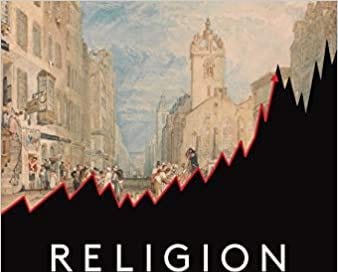






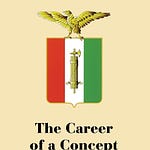
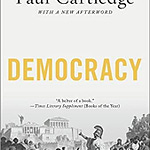
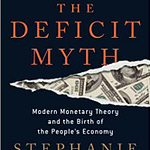
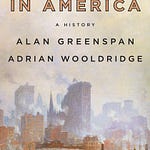
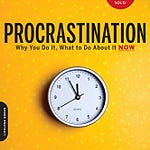
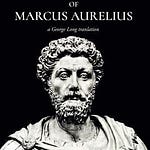
Share this post